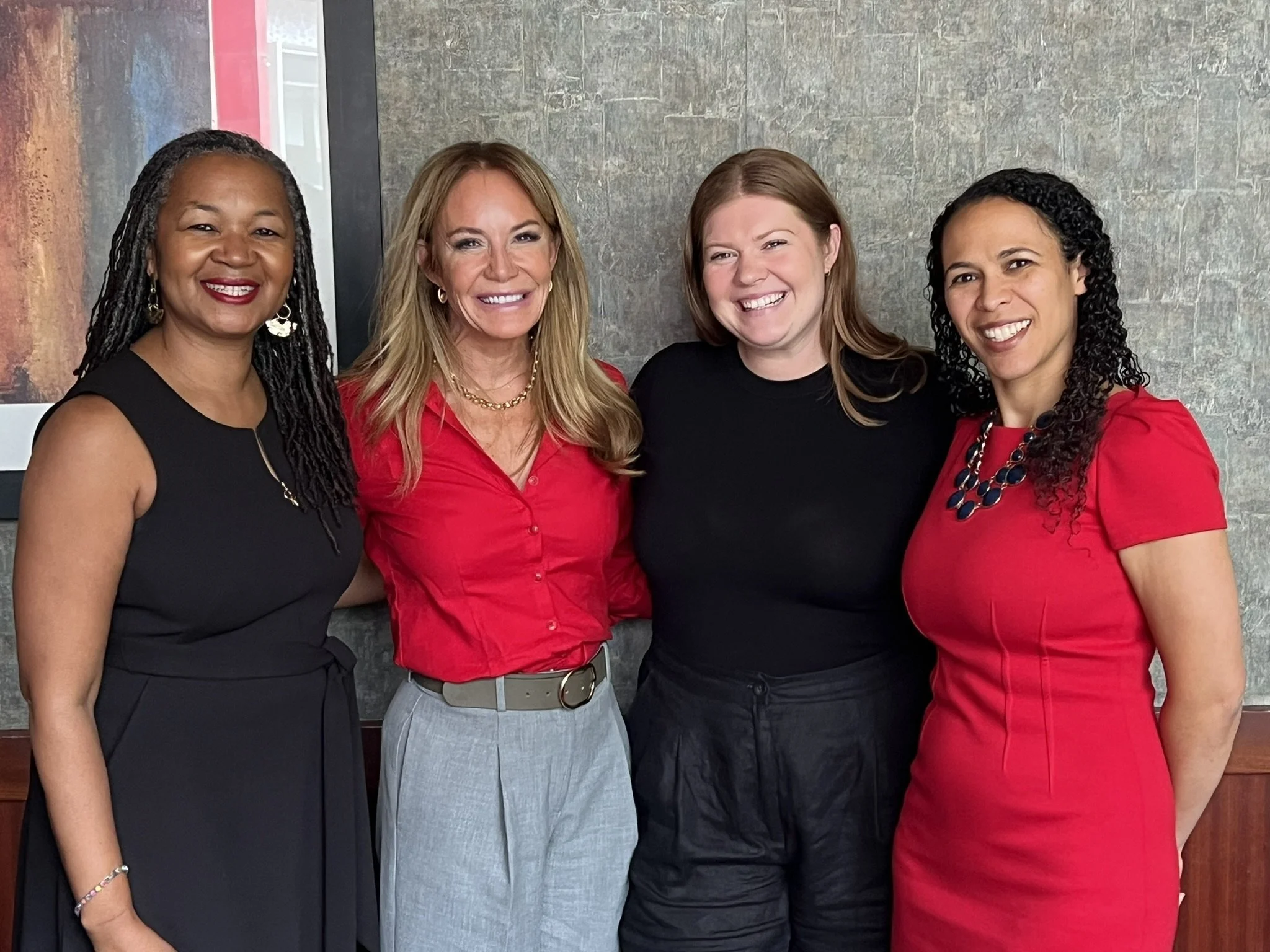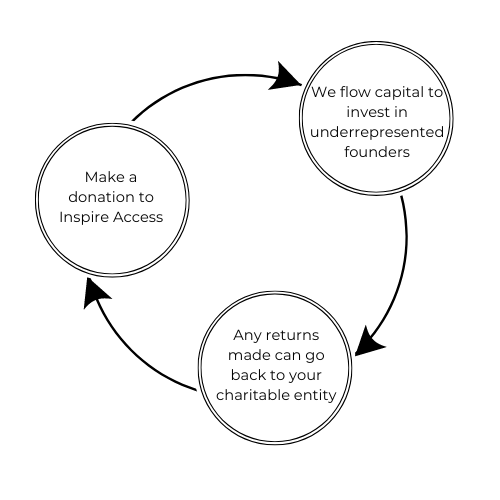Patrice Brickman – Empowering Entrepreneurs by Bridging the Investment Gap
From left to right - Tonia Wellons, Patrice Brickman, Leah Brickman, and Anna Hargrave enjoy each other’s company at a July 2024 Table Talk gathering with donors and friends in Montgomery County.
For Patrice Brickman, giving back to the community has always been about more than just signing a check – it’s about working to make a difference.
“It’s not enough for us to simply throw money at something,” Patrice shared. “We need to be intentional and purposeful about investing in initiatives that will build community and change people’s lives.”
As a long-time resident of Montgomery County, Patrice has been involved with The Community Foundation for more than a decade. In 2012, Patrice was honored as the Montgomery County Philanthropist of the Year and joined The Community Foundation’s Montgomery County Advisory Board in 2017. Later, she was among the earliest investors in The Community Foundation’s impact investment offering through Partnership to End Homelessness. She also served on the boards of a host of local nonprofit organizations including the Washington Area Women’s Foundation, Children’s National Hospital Foundation, Halcyon, and Ascend at the Aspen Institute.
At a recent Table Talks luncheon event, part of a new series of small group conversations for Community Foundation donors to break bread while building common purpose, Patrice and her daughter Leah shared how they have shifted their philanthropic strategy in recent years to harness both their investments and grants toward achieving their goal of greater equity and opportunities. Patrice shared that arguably the family’s biggest impact has been felt not in the board room but within the world of venture capital and entrepreneurship.
Tackling the Gender & Racial Investment Gap
Patrice was first exposed to the world of venture capital in 1998, when her family business took on their first private equity partners. Over the next few years, she witnessed firsthand how fundamental venture capital is to helping any business scale and grow.
Inspired by this experience, she decided to start her own venture capital firm and set out to learn more about the field – enrolling in prestigious Executive programs at Stanford and Harvard University. However, upon arriving for her classes, she quickly noticed something about the diversity -or lack thereof – within the classroom.
“Out of 100 participants in the program, only nine of us were women,” Patrice remembered. “I realized that if there were this few females in the classroom, there probably weren’t a lot of them getting funded either.”
The racial and gender gaps in the venture capitalist field are among the starkest in the country. Just 18% of venture capitalists are female. Less than 5% are Black or Latino.
At the same time, female entrepreneurs and entrepreneurs of color receive very little venture capital funding – less than 3% of all venture capital funding goes to female entrepreneurs – and just 1% for Black entrepreneurs – compared to their primarily white, male counterparts (76% of funding in 2023).
Recognizing the need for more equitable capital investment, in 2015, Patrice launched Inspire Capital LLC, a capital investment firm with the mission of investing in predominantly women and minority-led businesses and became a co-founder of WE Capital – which focuses exclusively investing on women-led startups.
Unlocking the Power of Donor-advised funds
Moved by the murder of George Floyd in 2020, Patrice and her team felt a strong urge to find ways take their work to the next level.
“We needed a new avenue to shift the financial meter and invest more significant resources into communities of color,” Patrice shared. “After some research, we realized that donor-advised funds represented a huge opportunity.”
Donor-advised funds (DAFs) represent a large percentage of private philanthropic capital in the United States – roughly $229 billion in 2022. In 2022, DAFs accounted for $52.16 billion in grantmaking to nonprofit organizations across the country. Patrice wanted to find a way to leverage the remaining $177 billion to help entrepreneurs.
In January 2024, Patrice and her daughter Leah launched Inspire Access, a nonprofit that invests philanthropic dollars to funds and companies led by female and diverse founders.
As a 501(c)(3), Inspire Access is eligible to receive contributions from DAF’s and invest them directly in start-ups led by women and entrepreneurs of color. After a certain period of time, any returns made on the investment are reinvested in the original DAF – allowing the fund to continue operating and generating capital to support even more entrepreneurs.
“We’re trying to get people thinking about the possibilities,” Leah shared. “Both in the philanthropic world and in the business world – we need to reimagine what is possible by making the most of the tools we already have.”
Within a few short months, the nonprofit has already gotten off to a great start – investing in exciting environmental impact projects like Everybody Water and Bold Reuse, and Black-led venture capital projects like the Black Star Fund.
In addition to providing their founders with access to DAF capital, Patrice and Leah say they also strive to be a network builder for entrepreneurs.
“We want to be more of a connector than a provider,” Patrice and Leah explained. “Whether it be financial capital, business relations, or community connections -- our goal is to connect our founders to the resources they need to succeed.”
For more information on how to make an investment through your donor-advised fund at The Community Foundation, visit Inspire Access or contact our Donor Services team at [email protected]



